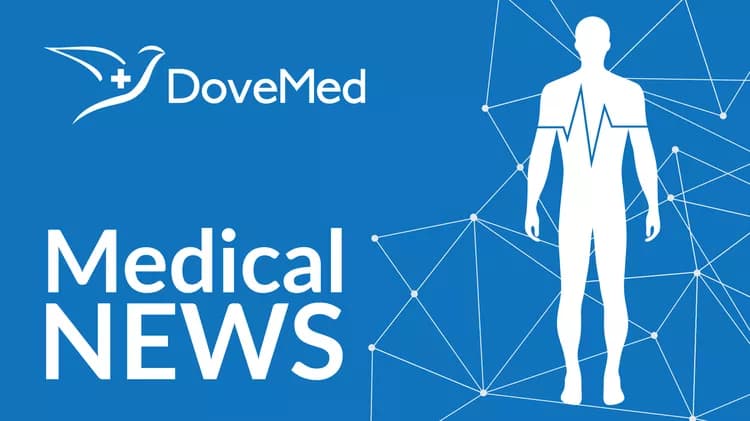
Inhaling Menthol Improves Cognitive Function In Alzheimer's Disease
Researchers show that smelling this substance modulates the immune system and improves cognition in animals with this neurodegenerative disease.
This study opens the door to developing therapies based on stimulating and training the olfactory system to prevent or alleviate the effects of Alzheimer's and other diseases of the central nervous system.
Pamplona (Spain), May 10, 2023. Researchers from Cima University of Navarra (Spain) have shown in animal models of Alzheimer's disease that inhaling menthol improves cognitive ability. This study discovered that repeated short exposures to this substance can modulate the immune system and prevent the cognitive deterioration typical of this neurodegenerative disease. When analyzing its mechanism of action, they observed that when smelling this aroma, the level of interleukin-1-beta (IL-1b), a critical protein mediating the inflammatory response, was reduced. Furthermore, by inhibiting this protein with a drug approved for the treatment of some autoimmune diseases, they were also able to improve cognitive ability in these diseased mice.
This research highlights the potential of odors and immune modulators as therapeutic agents. Furthermore, it opens the door to developing therapies based on stimulating and training the olfactory system to prevent or alleviate the effects of Alzheimer's and other diseases of the central nervous system. Frontiers in Immunology published the results of this study in its latest issue.
Brain, smell, and immune system connection
The functional balance of the brain depends on complex interactions between various types of nerve cells, immune cells, and neural stem cells. In this complex web of interactions, several studies have addressed the immunomodulatory and neurological effects of odorants. Other previous works have also shown a correlation between the loss of the sense of smell and the appearance of the first symptoms of Alzheimer's disease. "We have focused on the olfactory system's role in the immune and central nervous systems, and we have confirmed that menthol is an immunostimulatory odor in animal models. But, surprisingly, we observed that short exposures to this substance for six months prevented cognitive decline in the mice with Alzheimer's and, what is most interesting, also improved the cognitive ability of healthy young mice," says Dr Juan José Lasarte, director of the Immunology and Immunotherapy Program at Cima and principal author of the investigation.
Another result noted by the researchers is that "blocking the activity of T regulatory cells, one type of immune cells with immunosuppressive activity, also improved the cognitive ability of mice with Alzheimer's disease and also caused a clear benefit in the cognitive ability of healthy young mice," explains Dr. Ana García-Osta, a researcher at Cima's Gene Therapy of Neurological Diseases Program and principal co-author of this work. "Both menthol exposure and Treg cell blockade caused a decrease in IL-1b, a protein that could be behind the cognitive decline observed in these models. In addition, the specific blockade of this protein with a drug used in treating some autoimmune diseases also improved the cognitive capacity of healthy mice and mice with Alzheimer's".
"This study is an important step toward understanding the connection between the immune system, the central nervous system and smell, as the results suggest that odors and immune modulators may play an important role in the prevention and treatment of Alzheimer's." and other diseases related to the central nervous system," points out Dr. Noelia Casares, also a researcher at the Immunology and Immunotherapy Program and first author of the article.
The Government of Navarra and the Ministry of Economy and Competitiveness financed this work. It is part of the Instituto de Investigación Santiaria de Navarra (IdiSNA). It is also part of the INNOLFACT project, a multicenter consortium coordinated by Dr Enrique Santamaría, a Navarrabiomed researcher. This consortium aims to study the olfactory function in aging and develop new immunomodulatory therapies to slow down the development of neurodegenerative diseases.
Bibliographic reference:
Casares Noelia et al. "Improvement of cognitive function in wild-type and Alzheimer's disease mouse models by the immunomodulatory properties of menthol inhalation or by depletion of T regulatory cells". Frontiers in Immunology. 2023, 14:1130044. doi: 10.3389/fimmu.2023.1130044
About Cima University of Navarra
Cima University of Navarra is a biomedical research institute of the University of Navarra. The purpose of our more than 400 scientists is to carry out translational research of excellence based on novel biological knowledge and oriented to find therapeutic solutions to patients' needs.
To translate preclinical research results into clinical applications, Cima has a Translational and Innovation unit that establishes collaborations with biotechnology and pharmaceutical companies that convert scientific knowledge into new treatments for patients. In addition, we specialize in developing novel therapies, such as immunotherapy and gene therapy, and cancer research, whose activity is integrated into the Cancer Center Clínica Universidad de Navarra.
For more information: https://www.cima.cun.es/en
JOURNAL
Frontiers in Immunology
DOI
10.3389/fimmu.2023.1130044
METHOD OF RESEARCH
Experimental study
SUBJECT OF RESEARCH
Animals
ARTICLE TITLE
“Improvement of cognitive function in wild-type and Alzheimer´s disease mouse models by the immunomodulatory properties of menthol inhalation or by depletion of T regulatory cells."
ARTICLE PUBLICATION DATE
27-Apr-2023
COI STATEMENT
The authors declare that the research was conducted in the absence of any commercial or financial relationships that could be construed as a potential conflict of interest.
Related Articles
Test Your Knowledge
Asked by users
Related Centers
Related Specialties
Related Physicians
Related Procedures
Related Resources
Join DoveHubs
and connect with fellow professionals

0 Comments
Please log in to post a comment.